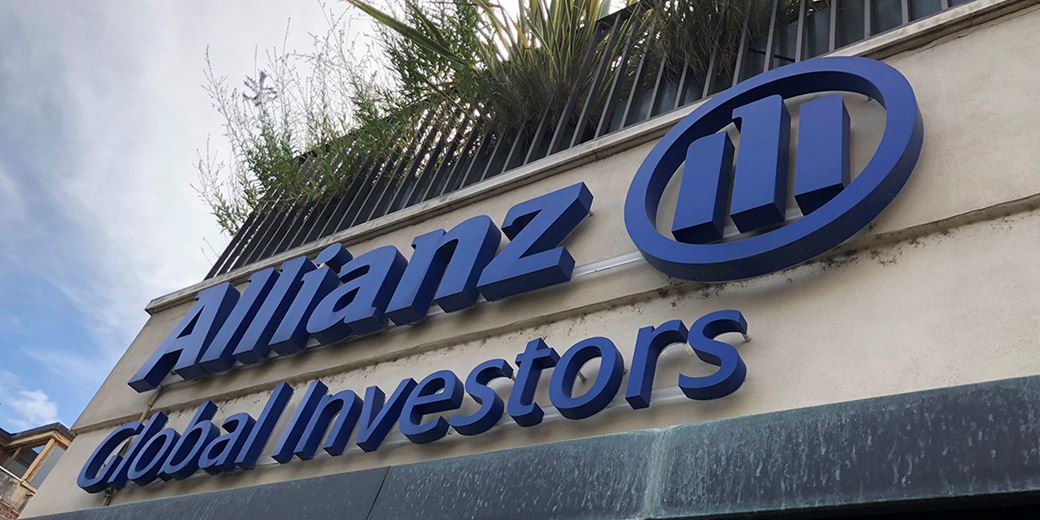There might be light at the end of the tunnel, but it ain’t here yet.
Allianz eyes ‘huge growth’ in resilient private debt

Latest Newsletter
Value stance rewards managers with first AAA rating
The year comes to a close with a host of managers gaining their AAA wings.
Real Life: A cheaper, smarter way to fly business to the US
Companies are clamping down on travel costs. Here’s how to travel in comfort while keeping the expenses department happy.
Community
Launches, context and analysis: welcome to Amplify’s regular updates on alts and private asset launches by asset managers. We unpack the details of a recent launch, add in detail on the manager’s existing operation and analyse the market it’s launching into. First up: Allianz looks east for private debt.
About the fund: Asset management group Allianz Capital Partners, a unit of Allianz Global Investors has raised €450m ($473m) so far for its Asia Pacific private credit fund. The strategy, which is targeting a total raise of €650m, held its first close and is expected to have its final closing by the end of the year.
At the time of the announcement, Emmanuel Deblanc, global head of private markets, highlighted the popularity of private debt and how well it has coped with the most recent market volatility.
He said: ‘Private debt will continue to play a crucial role in the portfolios of institutional investors and is an important pillar of AllianzGI’s private markets offering. In particular, we see huge growth potential for Asian private credit markets, presenting compelling opportunities for our institutional clients.’
About the business: AllianzGI has around €673bn in assets under management globally. Of that, €93bn is in private markets. It has been active in the private markets for many years but was primarily running assets for insurance group Allianz. In the past couple of years, the firm has expanded its offering and opened up strategies it has had for decades to third parties.
Other funds the group has been raising include the Allianz Private Equity fund, which held its first close at €520m last October, the Allianz Resilient Opportunistic Credit fund, which is targeting €750m, and the Allianz Global Real Estate Debt Opportunities fund, which has raised €515m so far. These strategies, and several more, are expected to have their final close by the end of the year.
At the start of the year, AllianzGI also created a dedicated unit for private markets impact investments, led by Matt Christensen.
This division is separate from the Allianz division in the US, which was recently prosecuted and fined for misleading investors over a fund investing in public markets.
While the firm has been rolling out strategies across the spectrum in private markets, with Deblanc leading the growth efforts, it has had a particular focus on private debt.
Why private debt?
Since the global financial crisis, private debt has become a popular asset class for investment managers, plugging a much-needed gap left by banks withdrawing from mid-market lending.
Assets in private credit funds now total $1.6tn, having increased 53% over the past five years, according to data from Intertrust Group. In addition, around $5tn is invested in alternative fixed income-oriented funds.
More new funds are being launched in private credit than in any other credit fund strategy, with 2,491 active managers of strategies existing globally.
What are the returns like?
Allocations to private debt are set to continue growing. According to a survey conducted by SS&C Intralinks, which polled investors including family offices, pension funds and insurers, more than half expect to increase their allocation to the asset class over the coming three years.
Over the last year private debt strategies have had their strongest performance in the last five years, reaching 15.4%, according to PitchBook. It is true they have lagged compared with other strategies, such as private equity. But Hilary Wiek, lead analyst at PitchBook believes private debt will likely see returns boosted from rising interest rates.
The Horizon internal rate of return (IRR) is calculated by taking capital calls, distributions and changes in NAV. It is a way of understanding how the industry cumulatively performs. The IRR includes data on all active funds – so this will include those with vintages from the last seven years or so.
The shorter term, quarterly figures allow investors to observe how strategies are performing through different cycles, and to better understand performance relative to broader asset classes.
The IRR for Q3 dropped to 1.5% from 6.5% in Q2. The rolling one-year horizon IRR – a metric that shows the IRR for a specific range of time – reached 15.4%, which was the second-highest reading in the past five years.
Distressed and special situations funds posted 19.8%, followed by mezzanine and bridge funds at 16.5% and direct lending at 10.7%. PitchBook head of private markets research Dylan Cox said this could flip in the coming quarters, however, as the market adjusts to central banks tapering their quantitative easing measures.
Latest Newsletter
Amplify Issue 30: The fund groups topping the tree
We analyse which groups have had the biggest inflows and outflows in 2022, look at managers achieving their first AAA ratings, and hear from Rob Kyprianou on why regulation gets it back to front.
Amplify Issue 29: Red hot: 2022’s private market hiring spree
2022 has been a hot year for private markets, but are asset managers putting the brakes on their expansion efforts? Plus, we look at how the bear market has affected launches this year and look at how firms can better communicate their brand values.
Amplify Issue 28: Fill your ESG product gaps
We hear from fund buyers on what they’re looking for from an ESG fund, find out what Neuberger Berman is plotting in the alts world, and learn the winners of Citywire’s Gender Diversity Awards.
Community
